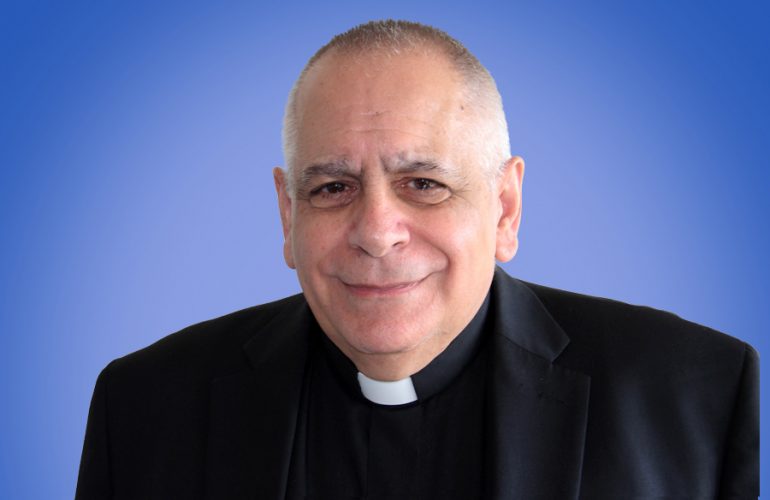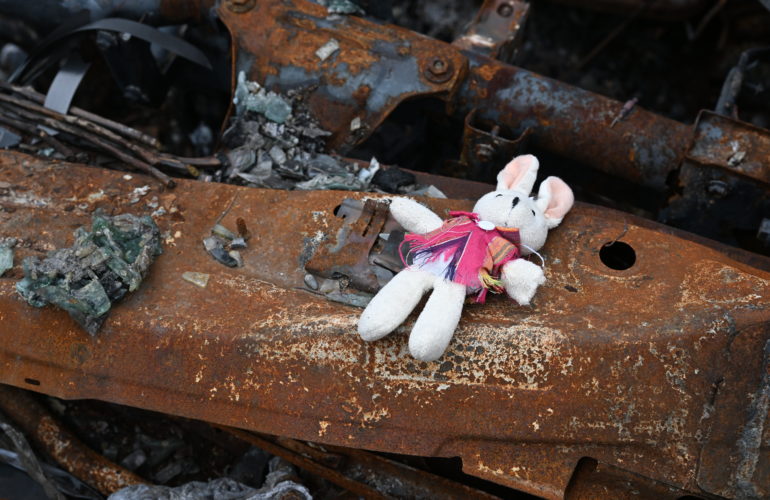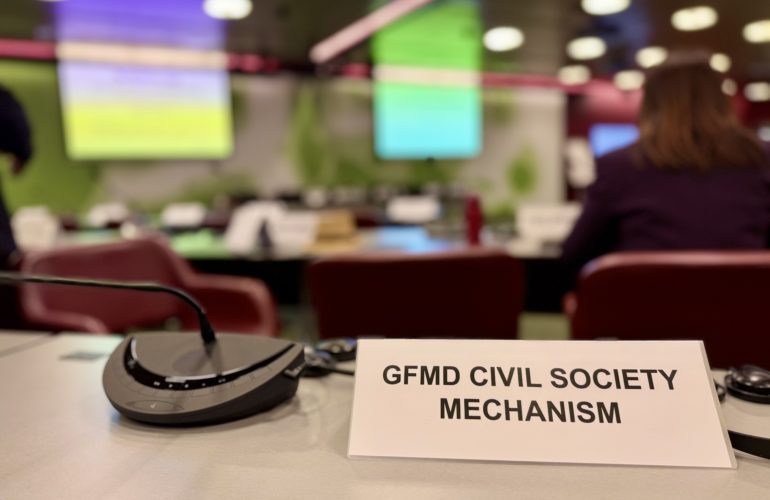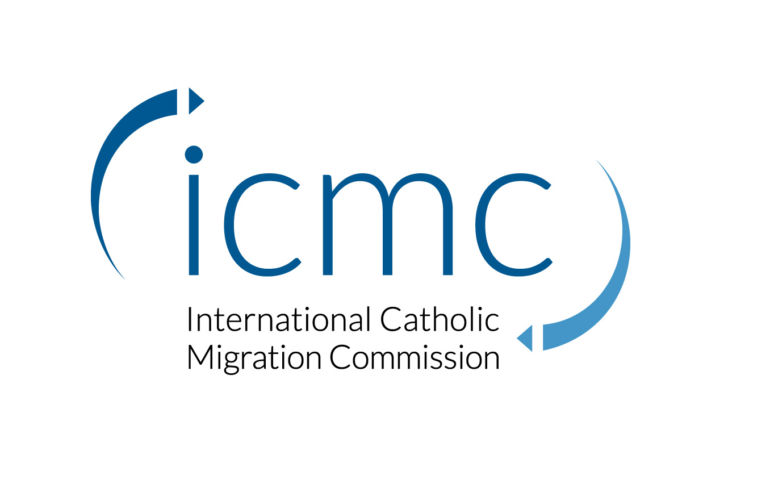“Traces of a Shipwrecked Humanity” – Statement on the Tenth Anniversary of Pope Francis’ Visit to Lampedusa
On 8 July 2013, Pope Francis visited the island of Lampedusa for his first pastoral visit outside of Rome since his election in March earlier that year. His Holiness said Mass for migrants, during which he condemned “the global indifference” to the plight of migrants and called for a “reawakening of consciences.” Located 113 km from the Tunisian coast, the Italian island has become the entry point into Europe for many migrants and asylum seekers. To commemorate the tenth anniversary of Pope Francis’ visit, ICMC Secretary General Msgr. Robert J. Vitillo has issued this statement.
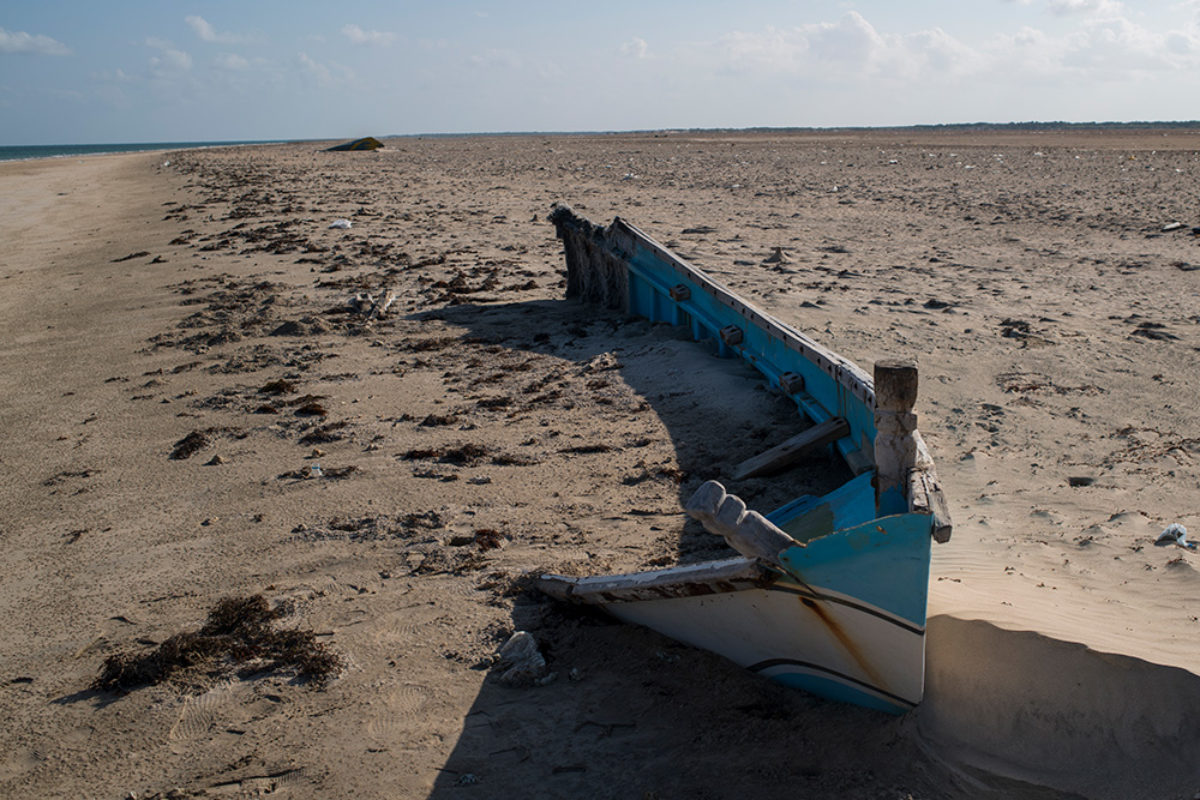
The title words for this statement first appeared in their original Italian language form (Tracce di una umanità naufragata) in the monthly magazine published by the Migrantes agency of the Italian Catholic Bishops’ Conference. This agency serves as the Italian national member of the global network of organizations that constitute the International Catholic Migration Commission (ICMC), which is dedicated to serving migrants, refugees, internally displaced persons, climate-displaced persons, and survivors of human trafficking. The reference was coined shortly after the shipwreck of an unseaworthy vessel off the coast of Calabria on the night of 25 February 2023. That tragedy claimed the lives of 86 migrants seeking safety and dignity but who instead lost their lives in the Mediterranean Sea, which woefully has become a huge and expanding cemetery.
The event that we are recalling took place some ten years previously when, after his election as Bishop of Rome and Supreme Pontiff of the Catholic Church, Pope Francis chose to make his first trip outside Rome to the island off the coast of Sicily, which already had seen too many shipwrecks. He traveled to Lampedusa without an entourage, but with the intention to mourn the untimely deaths of forced migrants who had had their hopes, dreams, dignity, and voices snuffed out by drowning instead of receiving the welcome and safety they so desperately desired. During that journey, Pope Francis asked God’s pardon for “those who are complacent and closed amid comforts which have deadened their hearts” and “for those who by their decisions on the global level have created situations that lead to these tragedies.”
Upon hearing these simple and humble prayers, many of us truly believed that Pope Francis had shaken the consciences of the entire human family. Regrettably, our naïve hopes did not stand the test of time. In fact, since 2014, 27,629 migrants have gone missing in the Mediterranean Sea, and that is nearly half of the 56,849 missing migrants worldwide[1], many left lifeless in deserts, on mountains, and in other routes taken in search of protection and safety.
Even the lofty ideas, fervent principles, and international humanitarian law set on paper by world leaders following the devastation of two world wars have not stood the test of time. These failures are especially evident as we see individual Nation States and multi-cultural regions building fortresses with walls instead of bridges and developing processes and pacts to externalize even the presentation of asylum claims. Such disturbing trends were noted as follows in a 2022 report by the UN Special Rapporteur on the Human Rights of Migrants: “… pushbacks remain de facto general policy in many States and continue to seriously impede the enjoyment of human rights of migrants who cross international borders. The full spectrum of such violations often remains hidden, due to State-led attempts to dismiss or cover up allegations of wrongdoing.”[2]
Also most disturbing is the massive number of internally displaced persons and the lack of adequate international protection for them even when they are neglected or endangered by the governments of their home countries or in situations of lack of the rule of law in such countries of origin.
No wonder many of us find ourselves shuddering when we read the challenge of Jesus to His disciples, “Let your ‘Yes’ mean ‘Yes,’ and your ‘No’ mean ‘No.’ Anything more is from the evil one (Matthew 5:37).”
On this occasion of the Tenth Anniversary of Pope Francis’ visit to Lampedusa, let us pray for pardon in the face of our own personal, community, national, and global inattention to forced migrants and internally displaced persons. Even more urgently, let us find the courage, prudence, and fortitude to re-trace our shipwrecked humanity into a fraternal, compassionate, dignified, and welcoming humanity for all our sisters and brothers in our global human family.
[1] IOM Missing Migrants Project : https://missingmigrants.iom.int/region/mediterranean
[2] Human Rights violations at international borders: trends, prevention and accountability – Report of the Special Rapporteur on the human rights of migrants, A/HRV/50/31, para. 70.
